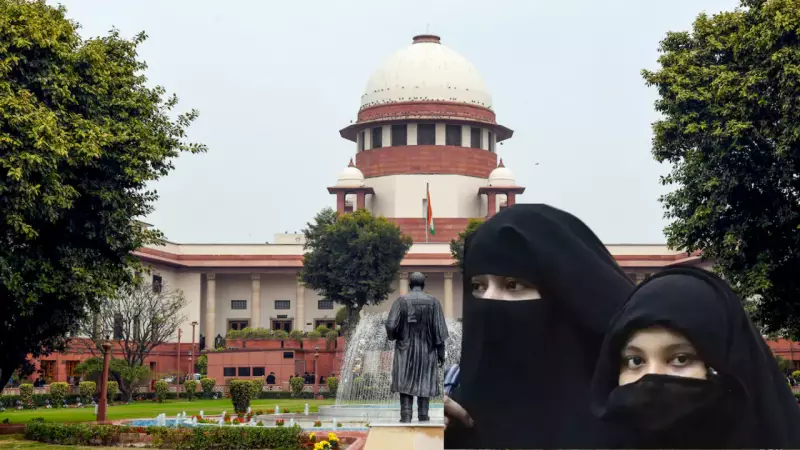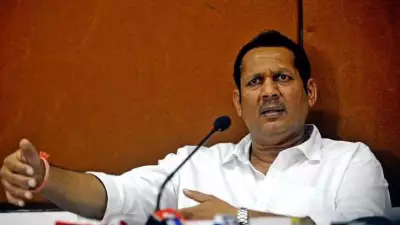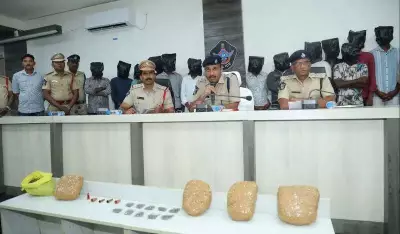
Supreme Court Takes Strong Stand Against Delegated Talaq Notices
The Supreme Court of India has raised serious concerns about the growing practice of Muslim men delegating the issuance of talaq notices to lawyers, questioning the validity of such procedures during a hearing on Wednesday. The bench, comprising Chief Justice-designate Surya Kant and Justices Ujjal Bhuyan and N K Singh, examined a petition challenging the unilateral use of Talaq-e-Hasan and expressed strong reservations about this emerging trend.
Journalist's Case Highlights Legal Vulnerabilities
While hearing the case of journalist Benazeer Heena, the court observed that talaq notices issued without the husband's signature cannot be treated as valid dissolution of marriage. The bench warned that delegating talaq to lawyers or third parties exposes women to serious legal vulnerabilities, including the possibility of being accused of polyandry if they remarry under the mistaken belief that their first marriage has been legally dissolved.
The court firmly rejected arguments from senior advocate M R Shamshad, who appeared for the husband and claimed that such delegation was a customary practice within the Muslim community. Justice Kant questioned, "How can this be a valid practice? The notices for talaq and talaqnama must have the signature of the husband. How can a third party give the woman notice on behalf of her husband?"
Women Left Legally Stranded
Benazeer Heena, who was present in court, narrated her ordeal of being abandoned by her husband after paying a total alimony of Rs 17,000 and being forced to run from "pillar to post." The court directed her to file an application specifying the welfare needs of her child and assured her that "we will do the needful."
The bench praised her courage, stating, "We salute her for gathering courage to move the court challenging the unilateral Talaq-e-Hasan process of divorce. Think of the condition of millions of Muslim women, illiterate and living in rural areas. What would be their plight?"
The court emphasized that clients often disown their lawyers' actions, leaving women legally stranded. "Is this legal? How are such innovations made to give talaq? How is the community promoting such practices? We will not permit such processes to harm the dignity of the Muslim women," the court declared.
Understanding Talaq-e-Hasan
Talaq-e-Hasan is one of the classical Islamic methods of divorce recognized under Sunni Muslim personal law. Unlike instant triple talaq, which the Supreme Court struck down in 2017, TEH is a staggered process carried out over three months. The husband pronounces "talaq" once every month, typically during a period when the wife is not menstruating, with each pronouncement separated by at least one complete menstrual cycle or lunar month.
This structure is closely tied to the Islamic concept of iddat, a mandatory waiting period that provides time for reflection and clarifies pregnancy status. The first two pronouncements are revocable, meaning the marriage continues if the couple resumes cohabitation. Only after the third pronouncement does the divorce become final and irrevocable.
Current Challenges and Legal Implications
The challenge to TEH arises from how it's being applied today. In Benazeer Heena's case, her husband allegedly sent three talaq notices through his lawyer, completed a divorce, and remarried another woman. Her counsel, senior advocate Rizwan Ahmed, told the court that "when a talaqnama does not bear the husband's signature, it is not a valid divorce document."
He cautioned that if a woman remarries believing she is divorced, only to later learn that her husband denies having signed or authorized the talaq, she could be accused of polyandry. Potential suitors may also refuse to marry her out of fear that the earlier divorce may not be legally valid.
Another petitioner, Nazri Nisha, appeared in person to narrate how the lack of a valid divorce document made it nearly impossible to access essential services such as school admissions and passports for her child. The Supreme Court asked her to file an application so that directions could be issued to protect her rights.
Historical Context and Future Proceedings
The current debate follows the Supreme Court's landmark 2017 judgment in the Shayara Bano case, which struck down instant triple talaq as unconstitutional. However, that ruling did not address Talaq-e-Hasan or Talaq-e-Ahsan, leaving unanswered questions that have now resurfaced.
The court has made it clear that TEH is not "so improper" as to be immediately struck down, unlike instant triple talaq. However, the judges signaled that procedural misuse, especially through delegated notices, cannot be tolerated. They emphasized that any valid divorce must comply strictly with Sharia procedures and must not compromise women's dignity and security.
The court will examine TEH in detail on November 26, when it hears a batch of petitions challenging unilateral talaq practices. The issues include whether TEH is constitutionally valid, whether unilateral extra-judicial divorce violates women's fundamental rights, and whether Parliament or the judiciary should reform personal laws affecting millions of Indian Muslim families.





